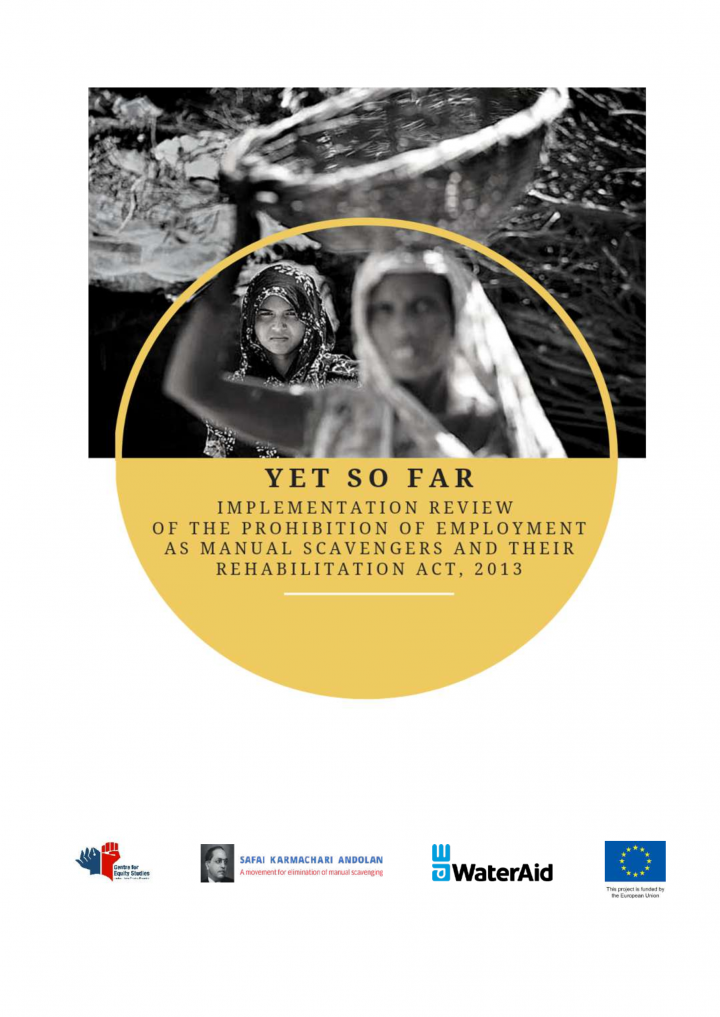Implementation Review of the Prohibition of Employment of Manual Scavengers & Rehabilitation Act, 2013
Mander, H., Kumbhare, S., Bhattacharya, A., Halder, B,. Chanchani, M., Poyam, A., Qaiyum, A. (2020)

Published in: 2020
Pages: 110
Publisher:
Centre of Equity Studies, Safai Karamchari Andolan, WaterAid India, European Commission
Author:
Mander, H., Kumbhare, S., Bhattacharya, A., Halder, B,. Chanchani, M., Poyam, A., Qaiyum, A.
Uploaded by:
SuSanA secretariat
Partner profile:
common upload
1190 Views
27 Downloads
There are twin tragedies that are involved in the continued prevalence of manual scavenging in our society. And one tragedy makes the other more tragic. Firstly, it is unfortunate that a country which boasts to be the world’s biggest democracy is still impervious to the fact that we have allowed people (largely women) to be involved with the practice of manual scavenging and cleaning of sewers, drains and septic tanks with bare hands and bare bodies, even allowing them to die drowning in our shit while we boast of technological leaps in the 21st century.
The second tragedy is that while large sections of the upper-caste community cry hoarse about affirmative action, like reservation, that “favour” the under-privileged, they do not find any fault in a reality where the job of cleaning our gutters continues to be reserved for only the Dalits. Even as the urban middle class empathise and tweet about Black Lives Matter, they conveniently invisibilise the Dalits in such degrading lives. The fact that they matter so less, in turn informs the lack of technological initiatives in the field of cleaning and the lack of effort in the rehabilitation of these sections.
Bibliographic information
Mander, H., Kumbhare, S., Bhattacharya, A., Halder, B,. Chanchani, M., Poyam, A., Qaiyum, A. (2020). Implementation Review of the Prohibition of Employment of Manual Scavengers & Rehabilitation Act, 2013. Centre of Equity Studies, Safai Karamchari Andolan, WaterAid India, European Commission
Filter tags
East Asia & Pacific English Import to Sanitation Workers Platform














